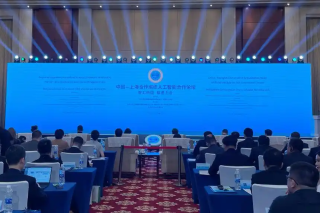TCM treatment's role detailed for nation's COVID-19 protocol
The latest diagnosis and treatment protocol for COVID-19 includes greatly expanded content about traditional Chinese medicine and features acupuncture therapy for the first time, experts said.
Zhang Boli, an academician at the Chinese Academy of Engineering and former president of Tianjin University of Traditional Chinese Medicine, said the amended protocol featured more changes in the TCM section, which is actively involved in the entire process of COVID-19 treatment.
"The newly added acupuncture therapy has further enriched treatment for the novel coronavirus and provided guidance for practice overseas," Zhang said during a recent online forum.
As a non-drug therapy, acupuncture was used at makeshift hospitals in Wuhan in early 2020 and proved to be effective in regulating people's immune functions.
"The new protocol recommended different acupuncture points and insertion methods for patients with different degrees of symptoms," Zhang said, adding that acupuncture will be given to patients during their treatment and recovery.
Liu Qingquan, president of the Beijing Hospital of Traditional Chinese Medicine, said patients benefit more when acupuncture therapy is introduced early in treatment.
Patients treated with acupuncture from the onset of the disease experienced rapid alleviation of symptoms such as fatigue, fever, cough and muscle aches, with the course of the disease greatly shortened, Liu told Xinhua News Agency.
TCM is more effective treating patients infected with the Omicron strain of the virus since they show relatively mild symptoms, mainly in the upper respiratory tract, Zhang said.
Zhang and his team set up a TCM ward in Tianjin during an outbreak of Omicron cases in January.
"The 62 patients we treated took an average of 9.7 days to get negative nucleic acid test results and none of them became severe cases," he said.
Apart from COVID-19 symptoms, TCM decoctions can also remedy elderly patients' underlying conditions such as headache and constipation, he added.
The new protocol includes three patented granules-Qingfei Paidu, Huashi Baidu and Xuanfei Baidu-that were developed from three TCM soup prescriptions and received market approval in March last year.
The four other medicines listed in the previous protocol, including Lianhua Qingwen capsules, remain in the latest version. They have been widely used among the increasing number of asymptomatic cases during recent domestic outbreaks.
The new protocol also added TCM treatment for children for the first time, suggesting that Chinese medicines be used on child patients based on their clinical symptoms.
Tong Xiaolin, a senior expert at the National Administration of Traditional Chinese Medicine, said given that many child patients have been involved in recent domestic outbreaks, the new protocol added relevant TCM treatment.
The new protocol learned from the experience of pediatricians who took part in treatment and formulated guidelines more suitable for child patients, he told Xinhua.
Zhang said that during treatment in Tianjin, children appeared to absorb Chinese medicine more quickly than adults. Children encouraged each other and overcame the challenges of taking traditional Chinese medicine, which tastes bitter, he added.

Copyright ©
Tianjin Municipal Government. All rights reserved. Presented by China Daily.
京ICP备13028878号-35



